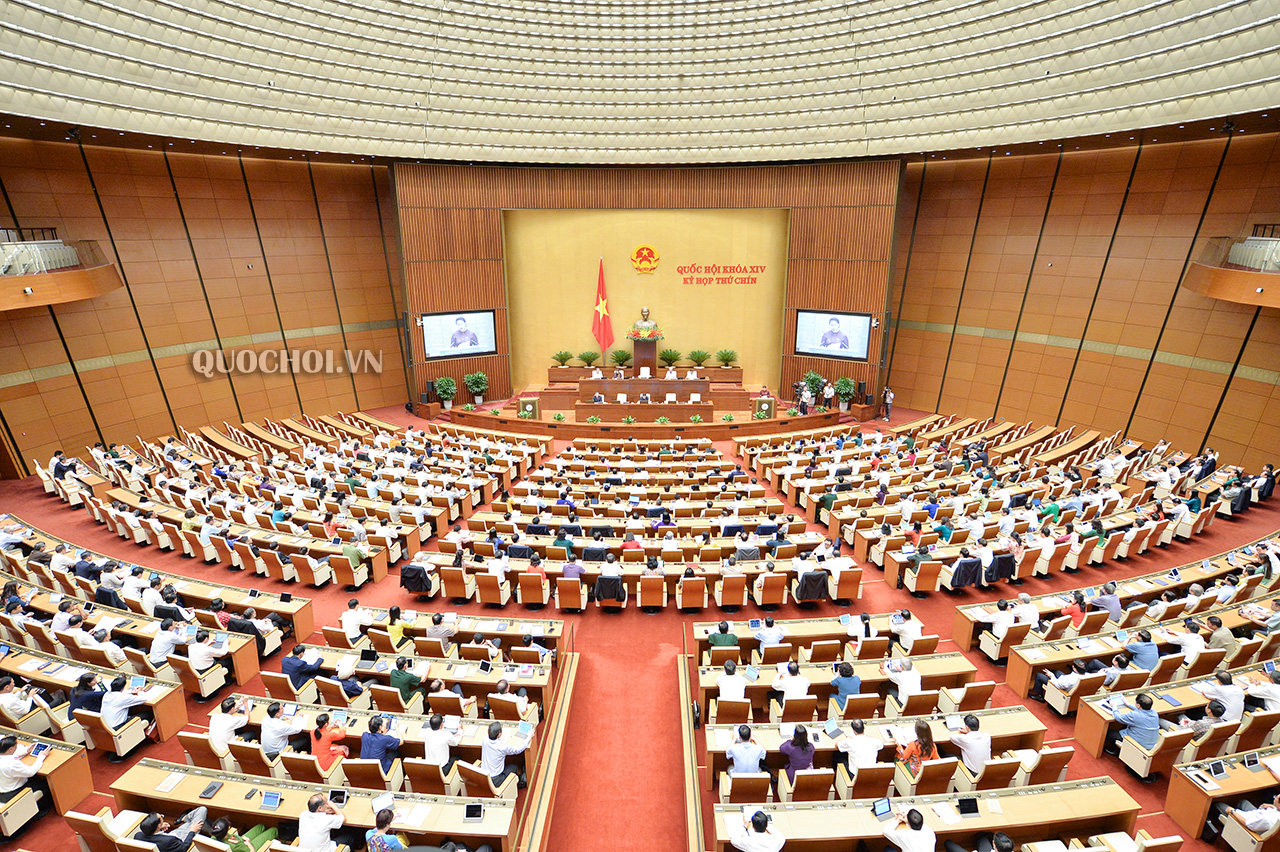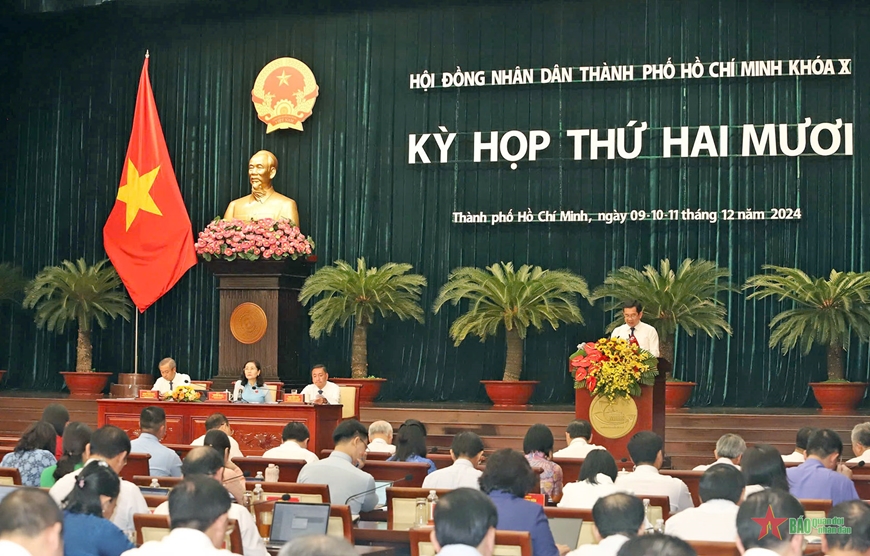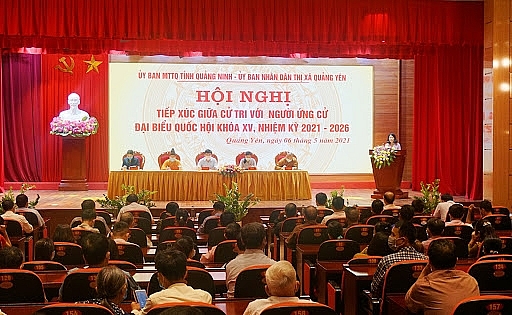Assigning judges to considerate and decide imposition of administrative penalties at the People's Court in Vietnam
What are the regulations on assigning judges to considerate and decide imposition of administrative penalties at the People's Court in Vietnam? - Khanh Duy (Can Tho)

Assigning judges to considerate and decide imposition of administrative penalties at the People's Court in Vietnam (Internet image)
Regarding this issue, LawNet would like to answer as follows:
1. Assigning judges to considerate and decide imposition of administrative penalties at the People's Court
Assigning judges to considerate and decide imposition of administrative penalties at the People's Court according to Article 10 of Ordinance 03/2022/UBTVQH15 as follows:
- Within the duration specified in Clause 2, Article 9 of Ordinance 03/2022/UBTVQH15, the chief justice of the Court shall assign a judge to consider and decide the imposition of administrative penalties.
With regard to consideration and decision on imposition of the sanction of sending the violator to a reform school, the assigned judge shall have skill, experience in handling of cases related to minors; or have necessary knowledge about psychology and educational science for minors.
- The assigned judge shall refuse consideration and decision on imposition of administrative penalties in one of cases specified in Article 11 of Ordinance 03/2022/UBTVQH15.
- If the assigned judge cannot continue to perform his/her tasks or refuses consideration and decision, the chief justice of the Court shall assign another judge to consider and decide imposition of administrative penalties.
2. Meeting about consideration and decision on imposition of administrative penalties at the People's Court in Vietnam
Meeting about consideration and decision on imposition of administrative penalties at the People's Court according to Article 21 of Ordinance 03/2022/UBTVQH15 as follows:
- A meeting about consideration and decision on imposition of administrative penalties may be organized offline or online.
- Before opening of a meeting, the clerk shall perform the following tasks:
+ Inspect the presence of persons requested by the Court to attend the meeting. In case anyone is absent, clarify the reason and report it to the judge to consider whether to continue, or adjourn the meeting;
+ Announce the internal regulations of the meeting;
- The procedures for meeting shall be conducted as follows:
+ The judge announces to open the meeting;
+ The judge explains the rights and obligations of the participants. In case of request for change of the judge or the clerk, the judge shall consider it.
He/she shall adjourn the meeting and report it to the Chief Justice of the Court for consideration and decision in cases specified in Article 11 of Ordinance 03/2022/UBTVQH15. If the judge must be changed, the meeting shall be adjourned. If the clerk must be changed while another clerk is not available for replacement, the meeting shall be adjourned.
+ The adjournment of meeting shall comply with regulations of Clause 4, Article 20 of Ordinance 03/2022/UBTVQH15.
+ The proposer or the authorized person presents the contents of the proposal;
+ The offender or his/her lawful representative (if any), the parents or guardian of the offender who is a minor presents their opinions on the contents of the proposal;
+ The proposer or the authorized person; the offender, the legal representative of the offender (if any); the parents or guardian of the offender who is a minor; the defender of the lawful rights and interests of the offender present their opinions about the grounds for imposition of administrative penalties or community-based educational measures to replace sanction of sending the violator to a reform school;
The personal status of the offender; aggravating and extenuating circumstances; educational forms and measures that have been already applied; propose or do not propose imposition of administrative penalties; the duration of imposition of administrative penalties or implementation of community-based educational measures;
+ The judicial expert, medical, educational, psychological and social specialists, a representative of the agency or organization where the offender is working, a representative of the school where the offender is studying, a representative of the commune-level People’s Committee, a representative of the commune-level Vietnam Fatherland Front Committee and its member organizations where the offender resides or other participants present their opinions to clarify related matters.
The commune-level child protection workers who participate in the meeting present their opinions about protection of children;
+ The judge asks the proposer or the authorized person; the offender, his/her lawful representative (if any), or the parents or guardian of the offender who is a minor and other participants to clarify related matters;
+ The offender, his/her lawful representative (if any), or the parents or guardian of the offender who is a minor; the defender of the lawful rights and interests of the offender argues related matters with the proposer or the authorized person.
The argument shall be conducted under the direction of the judge. The participants in argument have the right to respond to opinions of others. The judge who conducts the meeting shall not limit the time for discussion, create conditions for them to argue and present all their opinions; have the right to request the cessation of opinions irrelevant to case or repeated opinions;
+ The procurator presents his/her opinions about the legality of acts and decisions of the People's Courts, agencies, organizations and individuals on consideration and decision on imposition of administrative penalties according to regulations of this Ordinance;
+ The judge decides imposition of administrative penalties or failure to impose administrative penalties; termination or suspension of consideration and decision on imposition of administrative penalties in cases prescribed in Article 16 of Ordinance 03/2022/UBTVQH15 and declares contents of the decision at the meeting.
If the Judge does not impose administrative penalties but adopts community-based education measures to replace sanction of sending the violator to a reform school as prescribed in Article 140a of the Law on Handling of Administrative Violations, the decision on community-based education sentence shall be announced.
- The meeting about consideration and decision on imposition of the sanction of sending the violator to a reform school, apart from compliance with regulations of Clauses 1, 2 and 3 of Article 21 of Ordinance 03/2022/UBTVQH15, shall be held in a friendly manner, ensure the lawful rights and interests of the offender and the best interests of the offender.
The meeting rooms shall be arranged in a friendly and safe manner. The judge assigned to conduct the meeting shall wear the uniform according to regulation of the Court. The parents or guardian, lawful representative of the offender (if any) shall support the offender at the meeting.
The questioning of the offender shall be appropriate to his/her psychology, age, cognitive development, educational level and understanding. The questions shall be short, simple and easy to understand. The judge shall not ask many questions at once.
- Key word:
- People
- in Vietnam
- Cases of land rent exemption and reduction under the latest regulations in Vietnam
- Economic infrastructure and social infrastructure system in Thu Duc City, Ho Chi Minh City
- Regulations on ordination with foreign elements in religious organizations in Vietnam
- Increase land compensation prices in Vietnam from January 1, 2026
- Determination of land compensation levels for damage during land requisition process in Vietnam
- Who is permitted to purchase social housing according to latest regulations in Vietnam?
-

- Rights and responsibilities of National Assembly ...
- 18:14, 04/03/2025
-
- Duties and powers of the district-level People ...
- 19:00, 03/03/2025
-

- Activities of the People's Council of Vietnam ...
- 15:00, 01/03/2025
-

- Duties and powers of the provincial People's Council ...
- 16:30, 27/02/2025
-

- Joint Resolution 72 on voter contact of National ...
- 15:40, 27/02/2025
-

- Notable new policies of Vietnam effective as of ...
- 16:26, 11/04/2025
-
.Medium.png)
- Notable documents of Vietnam in the previous week ...
- 16:21, 11/04/2025
-
.Medium.png)
- Notable documents of Vietnam in the previous week ...
- 16:11, 02/04/2025
-
.Medium.png)
- Notable new policies of Vietnam to be effective ...
- 16:04, 02/04/2025
-
.Medium.png)
- Notable new policies of Vietnam effective from ...
- 14:51, 21/03/2025

 Article table of contents
Article table of contents

